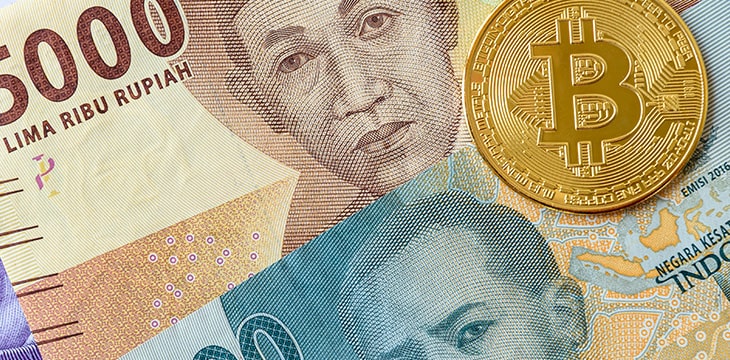|
Getting your Trinity Audio player ready...
|
Indonesia is inching closer to issuing its state-backed digital currency, the digital rupiah. According to a report by Bloomberg, the governor of Bank Indonesia, Perry Warjiyo, has confirmed that the central bank digital currency (CBDC) is on track to be issued to banks for retail use.
Warjiyo added that as the CBDC rolls out for retail use, the central bank is considering wholesale use cases for the digital currency, including cross-border transactions. The bank will release a complete conceptual design of the CBDC by the end of the year.
This CBDC will follow the same principle and have the same legal tender status as banknotes in the country. The governor stated:
“The principle of digital rupiah will be the same as paper money which is to be the only legal currency for digital transactions in Indonesia.”
The report further noted that Bank Indonesia is currently working on improving the cybersecurity features of the digital rupiah and exploring its cross-border interoperability with CBDCs of other countries.
In its current iteration, the CBDC will be issued to commercial banks, which will then make it available to final consumers. Commenting on the setup, which is notably popular among other countries, Wellian Wiranto, an economist at Oversea-Chinese Banking Corp in Singapore, remarked that it would help the country avoid the issue of disintermediation of banks.
“This is to avoid the classic issue of disintermediation of banks, whereby households would prefer to bank directly with the ‘risk-free’ central bank than banks on the street, especially during crisis period,” said Wiranto.
CBDC efforts prompted by increasing digital assets adoption in Indonesia
Indonesia first revealed plans to launch the digital rupiah last year. The announcement came from digital payment methods and digital assets gaining massive traction in the country. A study conducted by Coinformant at the time showed that Indonesia was the top-ranked country globally by interest in digital assets.
Aside from prompting Indonesia to join the CBDC bandwagon, the popularity of digital assets among local investors also brought regulatory attention to the industry.
The Financial Services Authority (FSA) of Indonesia, locally known as the Otoritas Jasa Keuangan (OJK), issued a directive banning financial institutions from offering digital assets services. Similarly, the Directorate General of Taxes also imposed a 0.1% capital gains tax on digital assets investment and VAT.
To learn more about central bank digital currencies and some of the design decisions that need to be considered when creating and launching it, read nChain’s CBDC playbook.
Watch: The BSV Global Blockchain Convention presentation, CBDCs and BSV

 03-04-2026
03-04-2026 




